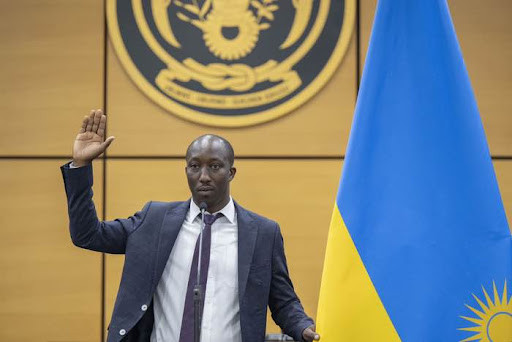
Rwanda minister of Infrastructure Jimmy Gasore has said investing in the renewable energy sector will transform the lives of people across Africa through job creation.
Gasore, who is also president of the International Renewable Energy Agency (IRENA) 14th Assembly, said Rwanda in particular is determined to prioritise renewable energy as a means to reduce its carbon emissions and contribute to a greener and sustainable future.
“It is our expectation that renewable energy will contribute to the socio-economic development of our country,” he said speaking during the ongoing IRENA’s summit in Abu Dhabi, United Arab Emirates on Wednesday.
Gasore said in order to develop and sustain this systemic change, countries must ensure that they have a skilled workforce, by up-skilling, re-skilling, and re-designing education and training systems so that young populations are well-prepared for the variety of employment opportunities offered by the energy transition.
“Indeed, these actions transcend sectors, and they transcend borders,” he said.
“They must be implemented nationally, regionally and globally, which requires greater financing and stronger national, regional, and international collaboration.”
Statistics shows that Africa has the youngest population in the world, with 70% of sub-Saharan Africa under the age of 30.
The call to triple renewables and double energy efficiency by 2030 was reached at the United Nations’ climate summit known as COP28 in Dubai last year.
- How Africa is building a different energy path
- Need to push for renewables as Africa’s new energy route
- Lawmakers urged to remove policy barriers stifling renewable investment
- African countries bank on renewable energy to create employment
Keep Reading
Gasore said stakeholders must not forget that for many developing countries, the energy transition is key to ensuring universal access and overcoming energy poverty.
He said there is a need to continue strengthening international cooperation and bring all hands on deck to ensure that progress is more equitably distributed.
“And that our people benefit from the vast opportunities of the energy transition, now and in the future,” he said.
Speaking at the same event, Francesco La Camera, director general of IRENA, said transitioning to renewable energy is vital in employment creation.
“We are entering a new era of change, one in which the energy transition will drive economic transformation,” he said.
“This change is bringing unprecedented new opportunities that can revitalise economies and lift people out of poverty. Energy transitions are central in today’s decision-making and with real impact on everyday lives.”
Renewable energy jobs soared to 13.7 million in 2022, almost double in 10 years, according to IRENA.Though jobs were concentrated in fewer countries like China, experts say growing use of industrial policies can create more localised supply chains in developing nations like those in Africa.
Localising supply chains does not only guard against disruptions in global supply chains, but also create more jobs domestically, experts say.
IRENA’s 14th Assembly is running under the theme: “Outcome of COP28: Infrastructure, Policies and Skills for Tripling Renewables and Accelerating the Energy Transition”.










